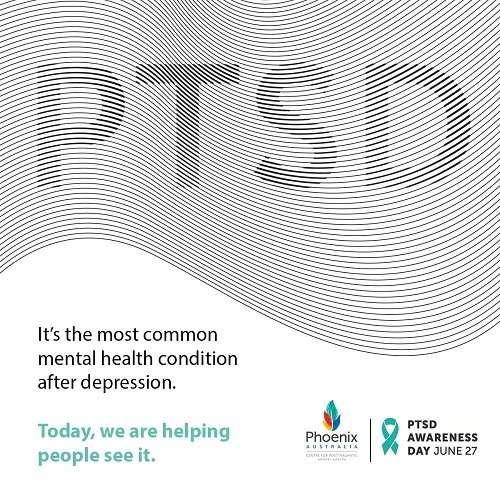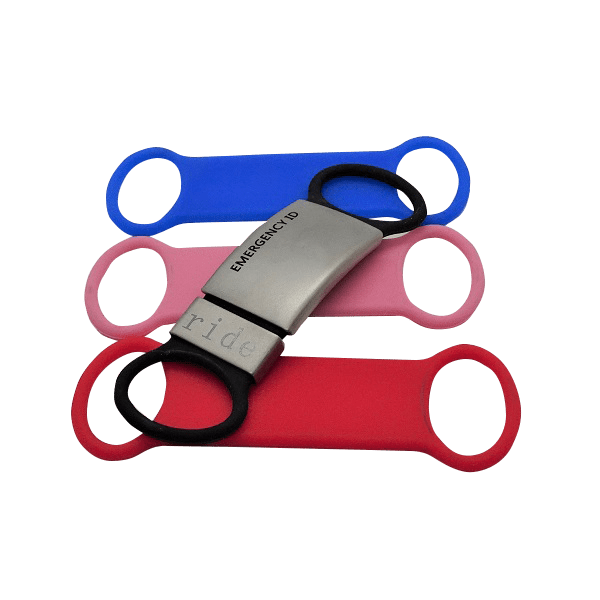PTSD Awareness Day
“PTSD is a subject I am passionate about, as I was diagnosed with Chronic PTSD after continual exposure to traumatic events during my 13 years Policing career. PTSD had a devastating effect on me and for about 5 years of my life I was just existing, just function and very ill. I lost my career, my marriage, my home, many friends and some family due to my struggles.
It has taken many years of seeing Psychologists, Psychiatrists and medications to manage my PTSD. Please take the time to read about PTSD, so you are more aware and therefore perhaps more understanding of the struggles many people have.
People suffer from PTSD in varying degrees and it can impact every aspect of your life in varying degrees. I have lost friends and colleagues who have taken their lives due to their struggles. I encourage you to seek help and never lose hope of again leading a happy and valued life”
Nicole Graham Founder & Director of Emergency ID Australia
27 June is PTSD Awareness Day. Phoenix Australia aims to raise awareness about posttraumatic stress disorder (PTSD) and the impact of trauma, because if more people know about PTSD, then more sufferers can get the help they need. Unfortunately, many people who live with PTSD don’t get treatment because they don’t recognise their symptoms as PTSD, don’t know what treatments work, or because of stigma. Fortunately, there are treatments for PTSD that work: recovery and renewal is always possible.
PTSD is the most common mental health disorder after depression
Trauma can have a devastating effect on people’s lives. Anyone of us can be affected and the psychological impacts can be deep and complex.
They can affect any of us physically and emotionally, and the way we see ourselves, others, and the world around us. The problems that arise after trauma can be complex and impair our wellbeing.
Not everyone who experiences trauma will develop PTSD, but about 5-10% of Australians will suffer from PTSD at some point in their lives. That means that at any one time over 1 million Australians have PTSD.
Could I have PTSD?
PTSD is a debilitating condition, so it’s important to know what the symptoms are. There are four main symptoms of PTSD.
- Re-living the traumatic event. For example, you might be troubled by distressing and unwanted memories of what happened, or have vivid nightmares or flashbacks
- Avoiding reminders of the traumatic event. For example, you might find yourself avoiding activities, places, people, thoughts or feelings that bring back memories of what happened
- Having negative thoughts and feelings. For example, you may experience fear, anger or guilt, or feel ‘flat’ or numb
- Feeling wound-up. For example, you might have trouble sleeping or concentrating, or feel angry or irritable; you might find you are taking more risks, get easily startled, or feel as if you’re constantly on the lookout for danger
It’s important to remember that people need help moving beyond harrowing events. Having PTSD is not a sign of weakness and no one should feel ashamed to seek help.
For more information visit our PTSD page or watch the videos on our Recovery Online website.
PTSD doesn’t just affect people in the military or emergency services
Psychological trauma comes in many forms and impacts people from all walks of life. While it’s true that around 1 in 10 military personnel and emergency service workers worldwide have PTSD, they are not the only ones who suffer PTSD.
Three in four Australians will experience an event that can cause psychological trauma in their lifetime. An event where a person experiences or witnesses actual or threatened death, serious injury, or sexual violence has the potential to be traumatic. We know that most people do recover quite quickly after trauma with the help and support of family and friends. But for some, the effects can be long-lasting, and they may develop PTSD.
Events that can cause PTSD include:
- war and military experiences
- sexual or physical assault
- sudden death or serious injury of a close person
- car crashes or other serious accidents
- disasters, like fire, hurricane, flood or earthquake
- terrorist attacks.
PTSD can be caused by a single traumatic experience, or many. Children can develop PTSD too.
We have helpful resources for people who have experienced trauma, and information for parents and carers of children and teens.
There are effective treatments for PTSD
Effective treatments for PTSD are available; they include counselling, medication, or a combination of both.
- Counselling/Therapy. It is generally best to start with talking therapies rather than use medication as the first and only solution to the problem. Recommended therapy approaches for PTSD include trauma-focussed therapies such as prolonged exposure, cognitive processing therapy, cognitive therapy, and eye movement desensitisation and reprocessing (EMDR).
- Medication. The medications usually used to treat PTSD are antidepressants. Even if you don’t have depression, antidepressants can help make feelings associated with trauma more manageable. There are different kinds of antidepressants, but research has shown that those most likely to help with PTSD are sertraline, paroxetine or fluoxetine (selective serotonin reuptake inhibitors or SSRIs) and venlafaxine (a serotonin noradrenaline reuptake inhibitor or SNRI).
It is generally advisable to start treatment with counselling (talking therapies) rather than use medication as the first and only solution.
For more information about trauma treatment visit our Treatment options page or our Current treatment trials page.
What if my loved one has PTSD?
Support from family and friends is important to help people with PTSD recover. There are many ways you can help, here are some ideas.
- Plan enjoyable activities together. Do enjoyable things with them, and encourage them to plan to do at least one enjoyable thing each day. You may need to help them come up with some ideas by asking what activities they used to enjoy before the traumatic event, or making some suggestions.
- Check in with them regularly and provide emotional support. Your loved one may or may not want to talk about their experience or feelings. If they do want to talk, choose a time to talk when you won’t feel rushed or tired. Don’t feel like you have to make their distress go away or say ‘the right thing’; listening is very important.
- Encourage them to get help. You could offer to go to the doctor with them, or provide other practical support, for example, help them find the time and space to recover by offering to take care of their kids or doing the weekly shopping.
- Encourage them to look after themselves by getting plenty of rest, eating well, exercising regularly, making time for relaxation and cutting back on coffee, cigarettes, drugs, and alcohol.
Supporting someone who has been through a traumatic event can take a toll on you, so it’s important that you also take time to look after yourself. For more information visit our Helping others page.
PTSD Mobile Phone APP
Phoenix Australia has developed a smartphone app for sufferers of PTSD, on behalf of the Department of Veterans’ Affairs (DVA) and the Australian Defence Force (ADF). PTSD Coach Australia is an adaptation of the US Department of Veterans Affairs’ PTSD Coach app, and has been designed specifically for the Australian setting. While the app was developed to help current and former serving members of the Australian Defence Force, it will also be beneficial to other people suffering from PTSD.
The app is free on iTunes and Google Play.
Getting help
If you have experienced something traumatic and are still having problems two weeks or more later, talk to your GP or a mental health professional. For urgent support, call Lifeline on 13 11 14 for confidential 24/7 counselling and referrals.
SOURCE AND FURTHER INFORMATION https://www.phoenixaustralia.org/







